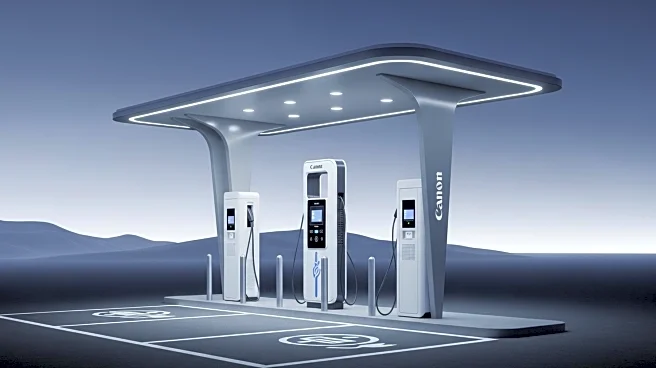What's Happening?
The CEO of Hyundai, José Muñoz, has clarified that the recent Immigration and Customs Enforcement (ICE) raid in Georgia did not occur at a Hyundai facility but at a battery plant operated by LG Energy Solutions. The raid resulted in the arrest of 475 workers, primarily from South Korea, who were employed by suppliers for LG. Muñoz expressed surprise at the incident, noting that the media mistakenly associated the raid with Hyundai's Metaplant facility. The raid has caused delays in the plant's construction due to labor shortages. President Trump has responded by allowing foreign companies to bring in 'people of expertise' to train American workers, although critics argue this may not mitigate the damage done to foreign companies' perceptions of U.S. immigration policies.
Why It's Important?
This development is significant as it highlights the potential chilling effect on foreign investment in the U.S., particularly in the automotive sector focused on electric vehicles (EVs). The ICE raid underscores the complexities and risks foreign companies face under current U.S. immigration enforcement policies. The incident may deter future investments and collaborations, especially in industries requiring specialized foreign expertise. The call for a new visa category for skilled workers reflects the need for policy adjustments to support large-scale industrial projects and maintain the U.S. as an attractive destination for foreign businesses.
What's Next?
The U.S. and South Korean governments are reportedly working to prevent similar incidents in the future. The proposal for a new visa category for highly skilled workers could be a step towards ensuring smoother operations for foreign companies investing in the U.S. The automotive industry, particularly those involved in EV production, will be closely monitoring any policy changes that could affect their operations and workforce strategies.










